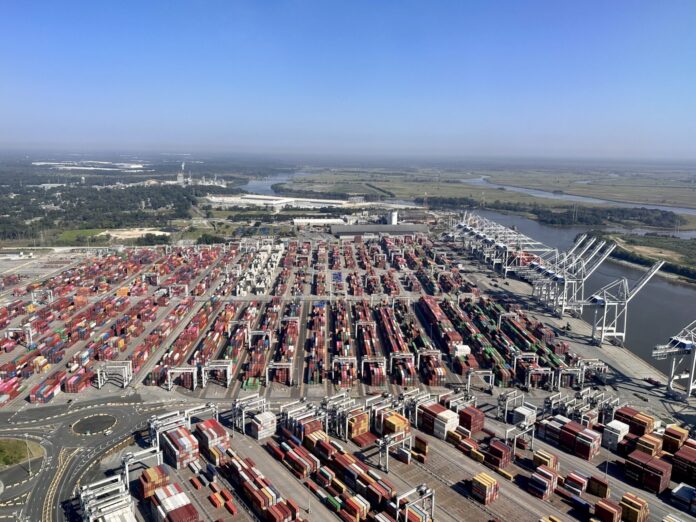
(Georgia Recorder) – Atlanta-based Delta Air Lines canceled earlier projections of record annual profits this week, with CEO Ed Bastian instead warning investors that the airline is canceling expansion plans and preparing for a recession.
“We’re in uncharted, unprecedented uncertainty when you look at what has happened,” Bastian said, calling it “a self-inflicted situation.”
“Until we get better clarity (from the Trump administration),” Bastian said, “I think our economy is going to continue to lose steam.”
The chaos in Washington and the carnage on Wall Street are also being felt in other ways in Georgia, with retirement accounts depleted, federal workers left jobless and companies large and small forced to reconsider business models that were designed for an economy that is being purposefully dismantled.
In early March, for example, the Georgia Port Authority announced another major expansion of its massive auto-import facility in Brunswick, which is already the second busiest in the nation. According to the GPA, one in 10 jobs in the area now depend upon the port, which is being expanded to store up to 1.4 million vehicles before they’re shipped to dealers inland.
When I drove by the port last week, a huge car carrier was unloading and the storage lots seemed full. That’s no surprise — foreign automakers have been rushing shipments to the United States in an attempt to get their product into the country before tariffs are imposed.
However, if Donald Trump’s economic plan has the impact on imports that he claims to want, those lots could be almost empty in a few weeks or months, and the expansion plan should be canceled.
If we do end up in a recession, it won’t be an accidental recession or the type of natural recession that comes at the end of a growth cycle. As Bastian noted, it will be a recession that Trump forced upon us with a nonsensical economic policy. And since his fellow Republicans have been too intimidated or infatuated by Trump to try to intercede, they too will own the political repercussions, which could be broad and deep.
Even before this upheaval, the 2026 election cycle seemed promising for Georgia Democrats. Mid-term elections tend to favor parties out of power, and a popular Republican governor, Brian Kemp, will be leaving office next year. And while Trump has shown the ability to draw casual voters to the polls when his name is on the ballot, he hasn’t been able to generate that same turnout from his base in mid-terms.
Take that situation, throw a recession on top of it and you have the makings of a transitional election in Georgia.
In short, if Democrats choose well, I think the stage is set for a 2026 election season in which Georgia elects its first Democratic governor in a generation, and perhaps other statewide officers as well. (The state Legislature is too well-gerrymandered to turn in a single election.)
The Democratic gubernatorial field has yet to take shape for ’26, but we already have a pretty good idea of what the GOP campaign will look like. In the primary, Attorney General Chris Carr, an ally of Kemp and someone viewed as a Trump skeptic by Republican standards, will be running against Lt. Gov. Burt Jones, a Trump supporter so avid that he served as a “fake elector” in 2020. Jones, a state senator at the time, also demanded that the state Legislature be called into special session to override Georgia voters and give the state to Trump.
Jones hopes to use Trump as a wedge in the 2026 primary campaign, reminding Republican voters that his support for the president has been absolute while Carr’s has been more situational. Given the ferocious loyalty of many GOP voters to Trump, maybe that will work, even if the economy turns sour, but in a general election it would likely be fatal.
Even if Carr wins the nomination, the GOP brand may be so toxic, and the party so divided, that a Republican victory becomes unlikely. But failure on the scale that we seem to be courting has to have its consequences.






